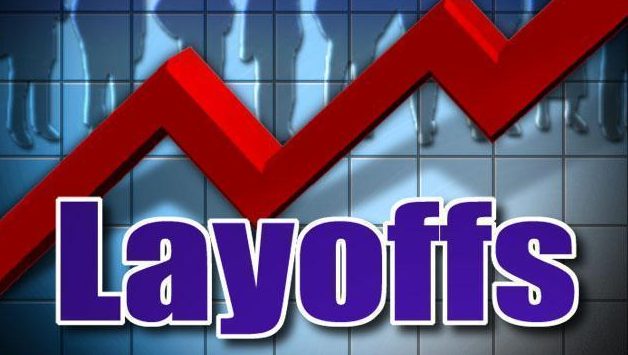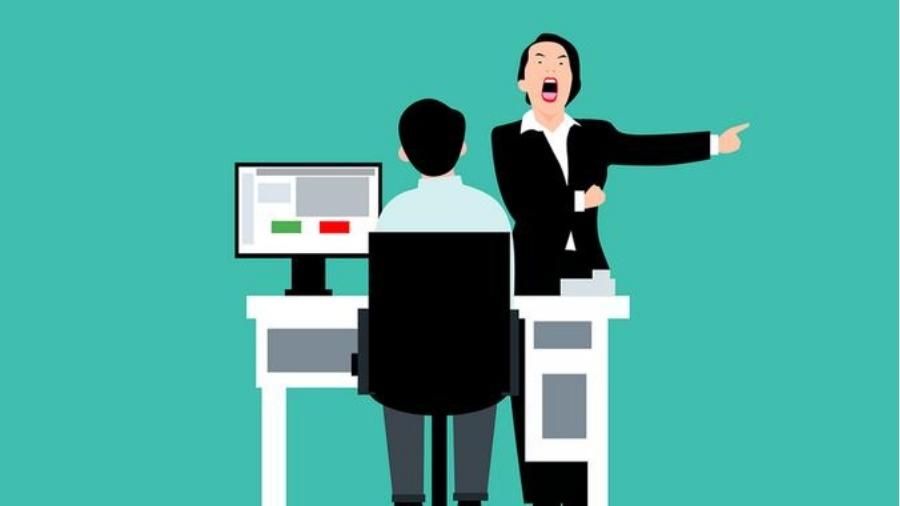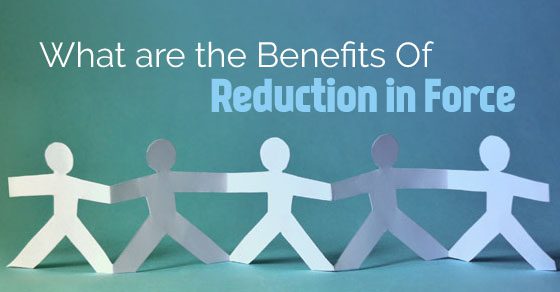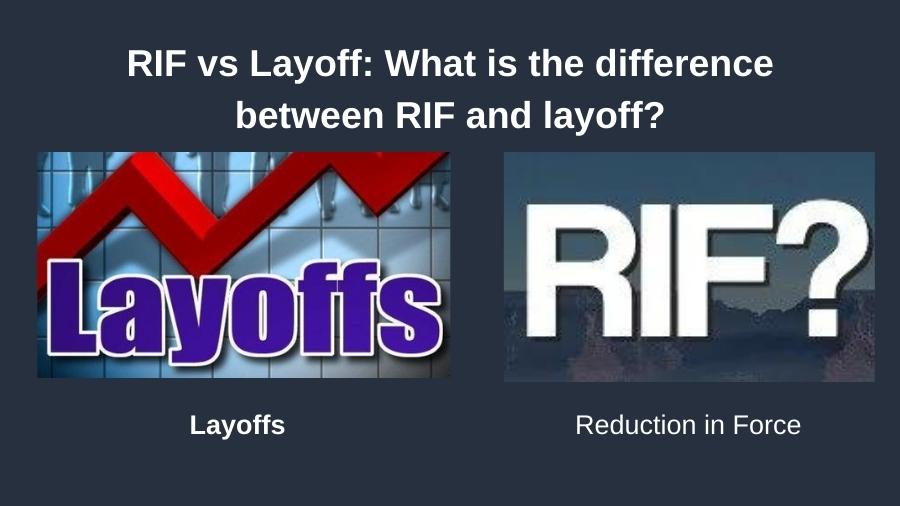It is not uncommon to see the terms RIF and Layoff used interchangeably to describe the same thing: someone losing their job. Despite the frequent use of these terms, they are not the same. Often people confuse RIFs with layoffs, a problem we call the RIF/layoff mix-up. Do you know the difference between a layoff and a RIF?
There is a good chance you have lost a job or stopped working at some point in your career. At the very least, you know someone who has been through something similar. What was their way of breaking the news to you? Did they use the words layoffs or RIF?
RIF vs layoff: What is the difference between RIF and Layoff?
Let’s check one by one what is a Difference between RIF and Layoff?
What is Layoff?
This is a temporary termination of employment by a company because it can no longer pay the employee or there is insufficient work for them to complete.

A layoff is not permanent; instead, the employer has the option of calling the employees back to work. Employees who are laid off might also continue to get unemployment benefits. However, if the company cannot get back on its feet, it may become permanent.
Most layoffs occur when a company downsizes when the economy experiences a recession or slump, or when a company decides to close a branch. Companies utilize several criteria to determine who to lay off.
How to Determine Whether to Fire an Employee
It is never easy for businesses to pick who to lay off. Companies utilize several criteria to determine who to lay off. For example, whereas some firms look at performance, others look at the moment of hire. Businesses must, however, guarantee that there is no discrimination when laying off staff.
Also, Read | Is Building a Custom Payment Gateway Right for You?
What is the distinction between being fired and laid off?
When a corporation dismisses or terminates an employee, it is usually due to the individual’s poor performance, activities that contradict corporate policy, or failure to follow the conditions of their employment contract.

There is no expectation that the person will be hired back after being fired. When an employee is laid off, it is typically due to the company’s financial health or restructuring rather than employee performance.
Are laid-off employees eligible for unemployment benefits?
Yes. Each state has its unique rules regarding unemployment compensation. However, as a result of the COVID-19 virus, the federal government has extended unemployment benefits to:
- An employer had to close due to COVID-19, making it impossible for employees to come to work.
- A person who is quarantined but hopes to return to work after the quarantine period is complete.
- An employee who is absent from work owing to a risk of exposure or to care for a family member.
Is severance pay related to unemployment benefits?
Yes. Employees who are laid off and get severance packages may lose their unemployment benefits. Depending on your state, severance may affect the amount and the speed with which your employees get unemployment benefits. Employees must file and pay taxes on any severance pay.
What exactly is RIF?

This is a permanent termination of work when a corporation no longer requires the services provided by an employee. It can be caused by a shift in business strategy, budget cuts, or the closure of an office.
If you are issued a RIF, you will not be able to rehire or recall to the same firm. RIFs are occasionally provided as early retirement incentives. RIFs can help struggling companies by allowing them to minimize costs.
This can help to avoid significant complications like total closure. Companies must follow anti-discrimination legislation while granting RIFs.
Also, Read | What is Schedule F Executive Order? Explained
What is the between a layoff and a RIF?
A layoff is frequently confused with a RIF, and companies and employees misuse the term layoff when a RIF has happened. A layoff occurs when an employer intends to call back its employees.
A RIF occurs when a position is terminated, and the business has no intention of rehiring the employee. According to SHRM, a layoff can become a RIF, or the company can immediately choose to cut its employment. A RIF might be implemented through the termination of personnel or attrition.
Are there any legal implications to a RIF?
The Equal Employment Opportunity Commission (EEOC) recommends listing the employees who will be terminated and then determining whether certain groups are impacted more than others, such as older employees, employees with disabilities, or any other protected group under federal employment discrimination laws.
Are RIF-affected employees eligible for unemployment benefits?

Yes. A RIF is eligible for unemployment benefits because they were laid off through no fault. RIF employees must meet the standard eligibility requirements, according to SHRM. Encourage employees to register a claim with their local unemployment agency.
RIF and Layoff have some similarities
- Both are concerned about revenue loss.
- Employees in both cases may be entitled to unemployment compensation.
The between RIF and Layoff
A layoff is a temporary termination of work by a corporation because the company can no longer afford the employee or there is insufficient work for them to complete. RIF, on the other hand, refers to the permanent termination of employment when a corporation no longer wants the services of an employee.
Also, Read | What is the unemployment pay in Alabama?
Timeframe: While they can become permanent, layoffs are only temporary, which means employees can be recalled. RIFs, on the other hand, are permanent and cannot be identified to work.
Is a layoff the same as being fired?
No. Layoffs are temporary terminations caused by a lack of work. On the other hand, stop refers to the termination of an employment contract for various reasons.
Which is preferable: being laid off or furloughed?
Furloughing is preferable because you are still employed by the employer and can look for work throughout the furlough period.
Why would a corporation choose furlough over Layoff?
Furlough allows businesses to keep employees they want but cannot afford to pay owing to internal concerns.
Table of Contents







Add Comment